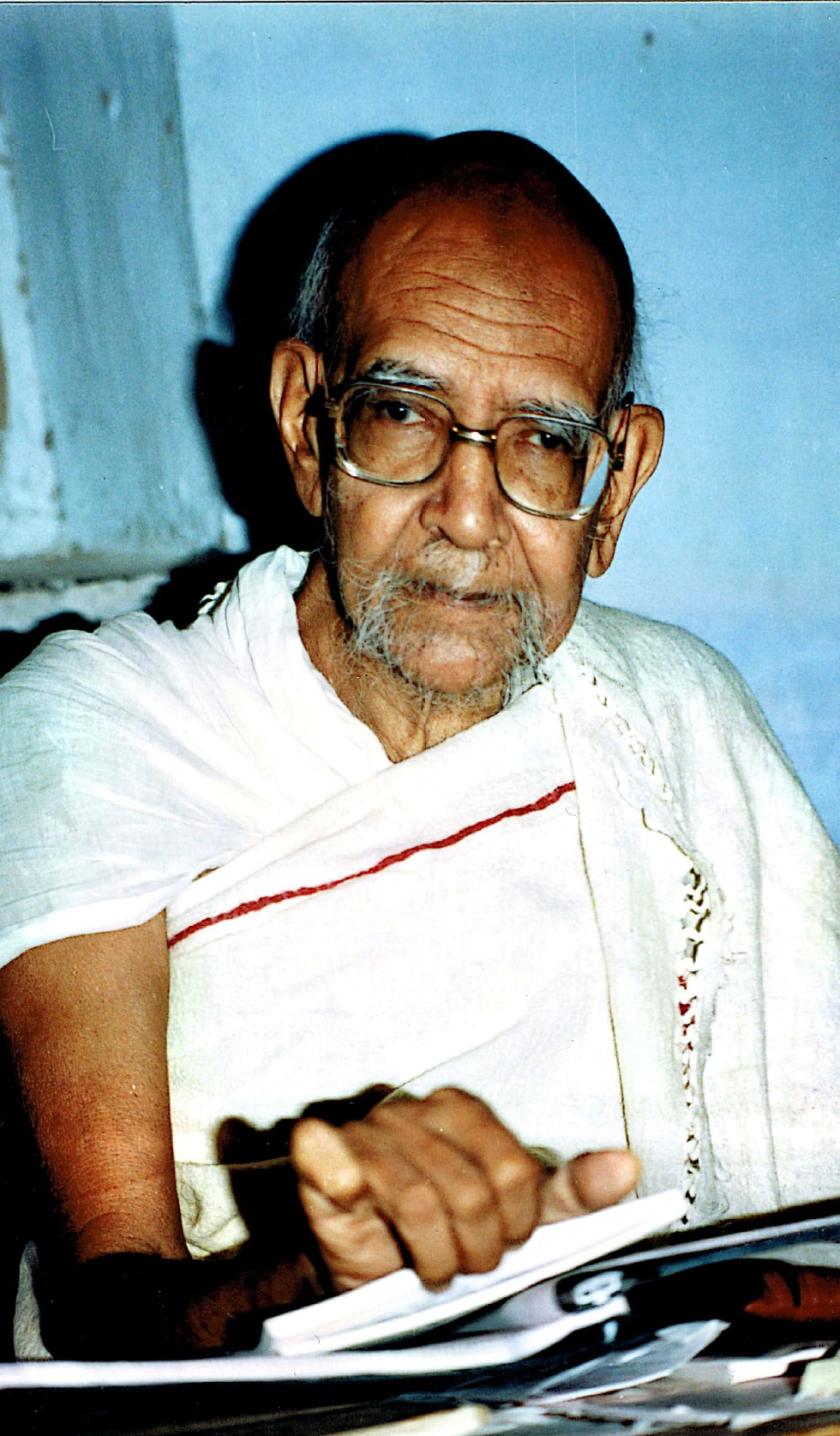In the untimely death of Muniraj Shri Jambuvijayji Maharaj, the nation has lost a polyglot, who was well-versed in Sanskrit, Prakrit, French, German, Japanese, Sinhalese and Tibeti, a researcher par excellence and one who was committed to restoration and preservation of priceless manuscripts of ancient scriptures. The world of Indian literature and culture is poorer today and the loss is almost irreparable. A staunch votary of Indian culture and values, his was a sensitive heart that bled for the poor. At the ripe age of 87, his zeal for research was phenomenal. He delved deep into the ancient scriptures, pored over them with a view to unravelling the treasures buried in them. His father Shravak Shri Bhogilalbhai became Muni Bhuvanvijayji and mother became Sadhviji Shri Manoharshriji. Muniraj Shri Jambuvijayji was eternally grateful to his parents and the Supreme Being who had blessed him to no end.
Well-known philosopher Shri Siddhasen Divakarsuri had authored a volume ‘Sanmatiprakaran’ and Pandit Bechardas Doshi and Pandit Sukhlalji edited it with exhaustive commentary – a labour of love of seven years. When young sadhu Jambuvijayji drew their attention to some of the inaccurasies in the volume, both the scholars were taken aback. Later Pandit Sukhlalji entrusted the task of editing ‘Dwadshar Nayachakra’ to Muniraj Jambuvijayji.
Jainacharya Mallavadi Kshamashraman, born in the fourth century, had endeavoured to pinpoint the salient factures and inherent weaknesses of twelve types of philosophical postulates, and at the end of it he had discussed the philosophy of anekant, which encompasses all the diverse and disparate points of views. The original manuscript of the volume was not available but based on the various commentaries extant, Muniraj Jambuvijayji produced a rare and priceless volume which proved to be a goldmine for the scholars of religion and philosophy. He singlehandedly laboured for twenty years with infinite patience and for the purpose of his research he studied ancient Tibetian language ‘Bhoti’ and its script. He would study a language required for his research and in the process he learnt French, English, German, Japanese, Sinhalee, Pali and Tibeti. He was constantly in pursuit of knowledge and therefore he preferred to spend his ‘chaturmas’ (four month of rainy season staying at one place) in a small village so that he could carry on his work undisturbed and live a life of a true recluse. He was always surrounded by old manuscripts and would talk about ‘Shrutgyan’ with devotees who througed him wherever he went. He was not an ‘ivory-tower’ sadhu and the common weal was always at his heart. Compassion for all was at the core of his teaching.
Scholars and researchers from Japan, England and Germany visited him very often and learnt a great deal about Indian scriptures from his illuminating discussions and discourses. His piety and profound scholarship touched them all. For any one who wanted to study or do research in Jain or Buddha religion or know more about Sanskrit or Pali language, Muniraj Jambuvijayji was the proper guide.
Mitchell from Italy studied in a German University and two years ago she met Jambuvijayji in a small village in Kutch and took lesson from him. Everyday she recited Navkar Mantra and gave up meat-eating. Similarly, Hiroko from Japan’s Hiroshima University studied Jain and Buddha religions and Sanskrit from the Muni. She also undertook a pilgrimage to Shetrunjay alongwith her parents from Japan. For scholars from Australia, America, Italy, Japan and South Africa, Muniraj Shri Jambuvijayji was an ever willing guide and a becon light.
Preservation of Jain store-houses of knowledge was his prime consideration, following the traditions established by Munishri Kantivijayji, Muni Shri Chatur Vijayj and Muni Shri Punyavijayji Maharaj.Shri Punyavijayaji had gifted valuable volumes of agam (canonical literature) through intensive research and the same tradition was carried forward to its pinnacle by Muniraj Shri Jambuvijayji. ‘Anuyogdwar’ a volume which was a key to the understanding of agam (canonical literature) , was his monumental work and later he also edited Haribhadrasuri’s work Dharmabindu.


